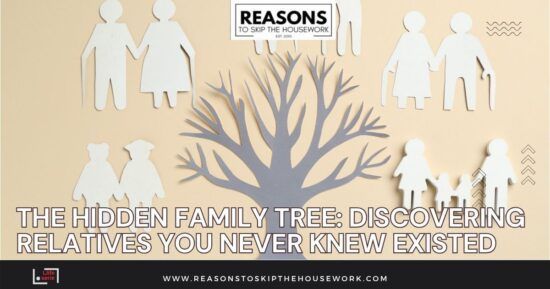
Family can be a complicated thing. While most of us grow up knowing our immediate relatives and maybe a handful of extended cousins, the reality is that many branches of our family trees remain completely hidden. Whether due to long-lost records, decades-old separations, or forgotten connections, countless people walk through life unaware of distant relatives who share their bloodline. That’s why some families—and even legal professionals—turn to specialized services to search for heirs when missing links in a family’s history need to be filled in.
It might sound like something out of a movie, but it happens more often than you might think: an individual passes away without a known next of kin, leaving behind not only a financial estate but also a trail of mystery. When no will exists and no immediate relatives are known, professionals step in to trace familial ties, sometimes uncovering relatives that no one in the family even knew existed.
Contents
Modern Family Record Gaps
Although we are in the age of digitalization, it is shocking how much of family history is not recorded or even distributed over various systems. The clues could be found in birth certificates, marriage licenses, immigration records, and even in old Bibles with handwritten notes, but they are usually incomplete or difficult to track. Such events as adoption, alienation, or evacuation in the period of war can leave significant gaps in the history of a family.
Families were, in most instances, torn apart generations ago, either voluntarily or involuntarily. As an example, a relative may have immigrated without informing people in the home country or may have changed their surname completely. Such holes can remain hidden until an estate must be probated or somebody goes to greater lengths to explore his or her family tree.
The Role of the Heir Search Professionals
In cases where an individual dies without a will (intestate) and there is no recognized family to take over the affairs of the estate, it is not unusual to find that the estate lies idle. Rather than having such assets lie dormant forever, heir location businesses come in to do the investigation. These specialists are trained to search through historical documents, government registers, and genealogy archives to compile a historical family tree.
On some occasions, this process unearths family members residing in the same city. Other times, the search can go continent to continent following lineages with immigration records, census, and even obituaries. The end result is the identification of legitimate heirs and making them available to inherit what should legitimately be theirs.
Connections When Discovery Occurs
More than the cost implications, there is something very emotional about finding lost relatives. What if one day you get a call and you are told that you not only have an inheritance but also a family tree that you never knew about? To others, it gives them an opportunity to learn more about their cultural backgrounds, know family traditions, or even encounter cousins whom they never thought they would have.
These are tales of surprise, family reunions, or discovering your blood ties late in life, and they give a human dimension to what can otherwise be a cold and faceless process. People frequently state that they feel stronger in their identity, understanding, or completion, particularly where the narration has to do with recognizing a portion of their past that was forgotten or willfully concealed.
Why It Matters
Finding the forgotten parts of the family tree is fundamentally not all about inheritance but rather about legacy. It is about ensuring that the lives of people, however silent they may be, do not fade into oblivion. By performing heir searches, services are actually conserving human stories – reinstating them to the limelight and providing them with the honor of existence.
In others, this may also imply that valuable property or money does not revert to the state, but rather remains within a family, where it can be used to finance schooling, home ownership, or other worthwhile objectives. It is a strong influence, particularly in households that have experienced financial difficulties across generations.
Conclusion
Finding new family members is a plot twist of a TV drama, but it is a daily occurrence through the services of finding heir professionals. These professionals uncover the lost limbs of our family trees – at times, they even reunite individuals with legacies that they did not even know that they were a part of. No matter what they are concerning inheritance, identity, or closure, the effect of these revelations is irrefutable. And the more our records become more refined, the more we are able to ensure that no relative–and no story–is ever forgotten.
